
News & Events
The 2023 ILEE Summer Program, centered around the theme "Seismic Resilience for Cities and Structures," concluded on August 12th with a grand closing ceremony at Tongji University, Shanghai, China. Taking place from July 31st to August 12th, 2023, The ILEE summer program 2023 offers an intensive two-week curriculum program focused on advancing the field of seismic resilient cities and structures. During this program, participants had the opportunity to attend foundational graduate-level courses on seismic resilience, delivered by distinguished earthquake engineering researchers from around the globe. By engaging with participants from various corners of the world, this program offered an exceptional opportunity for participants to deepen their understanding of earthquake-resistant infrastructure engineering, acquire practical skills, and establish a global professional network. Moreover, participants gained firsthand experience engaging with the local engineering communities, enabling them to actively participate in the exploration of Chinese culture while witnessing the rapid infrastructure development.
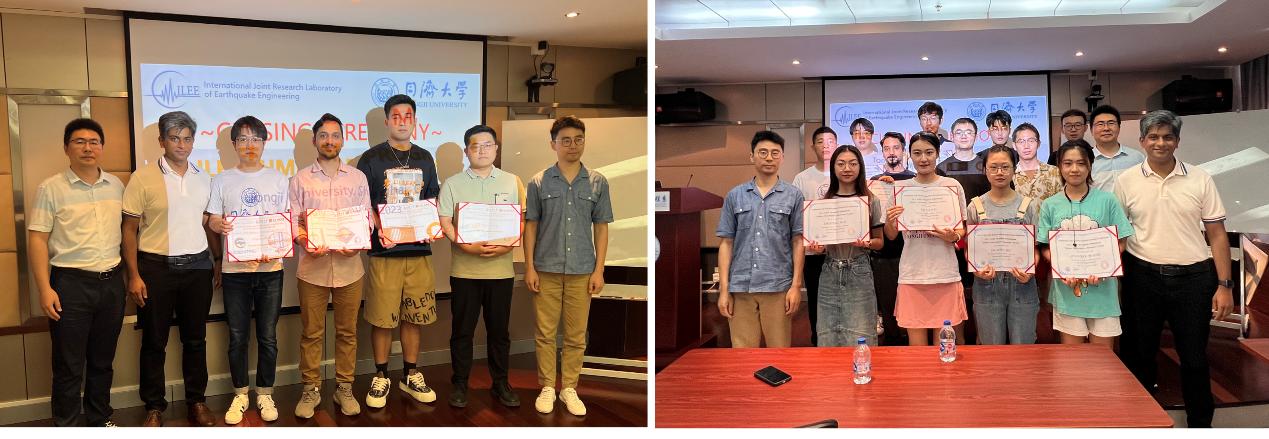
The event concluded with the ILEE Summer School's closing ceremony, held in Room B504 of the Civil Engineering Building. Prof. Yu Haitao, Vice director of ILEE, congratulated participants on their successful completion of the program and conferred graduation certificates. Four participants were honored with the Outstanding Camper Award from ILEE. Prof. Yu also extended gratitude to volunteers, recognizing their invaluable contributions. The closing ceremony was attended by Prof. Lu Yiqiu and Assistant Prof. Zeeshan Qaiser, representing ILEE.
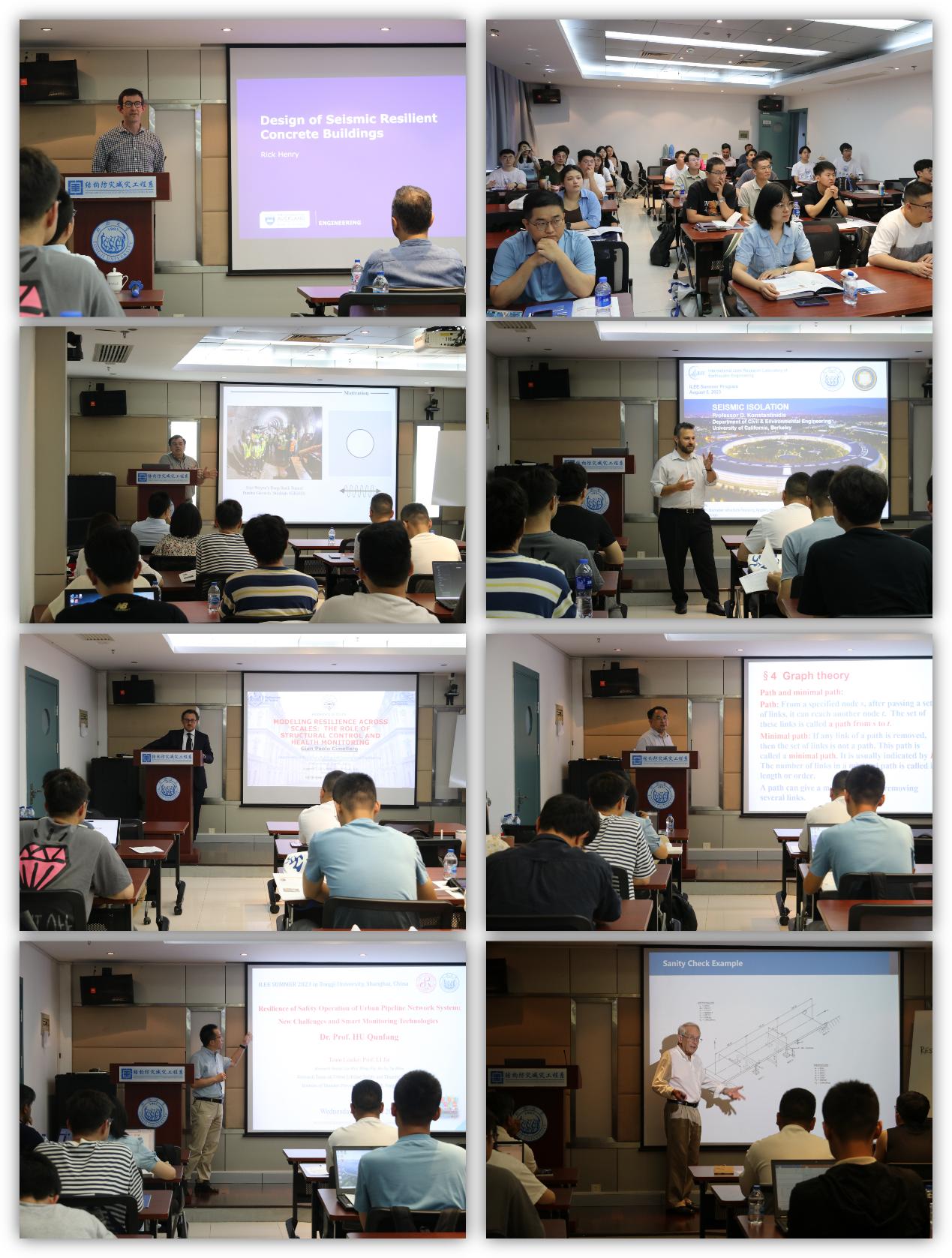
The 2023 ILEE summer program hosted 22 participants from diverse regions. These participants engaged in specialized courses delivered by distinguished academics, covering topics such as: Seismic Resilience of Building Structures, Seismic Vulnerability and Resilience of Underground Structures, Seismic Isolation, Seismic Resilience of Bridges and Highway Systems, Modeling Resilience Across Scales: The Role of Structural Health Monitoring and Machine Learning and Seismic Resilience of Lifeline Engineering provided by Prof. Richard Henry from The University of Auckland, New Zealand; Prof. Antonio Bobet from Purdue University, USA; Prof. Dimitrios Konstantinidis from UC Berkeley, USA; Prof. Gian Paolo Cimellaro from Polytechnic of Turin, Italy; Prof. Qunfang Hu and Prof. Wei Liu from Tongji University, China; Prof. Ian Buckle from Nevada University, USA respectively.
A program highlight was the insightful visits to institutions such as the State Key Laboratory of Disaster Reduction in Civil Engineering; Tongji Architectural Design (Group) Co., Ltd., TJAD; East China Architectural Design & Research Institute, ECADI; Tunnel Engineering Co., Ltd. Shanghai Tunnel; Yangtze River Delta integrated green technology demonstration building; and Shanghai Research Institute for Intelligent Autonomous Systems.
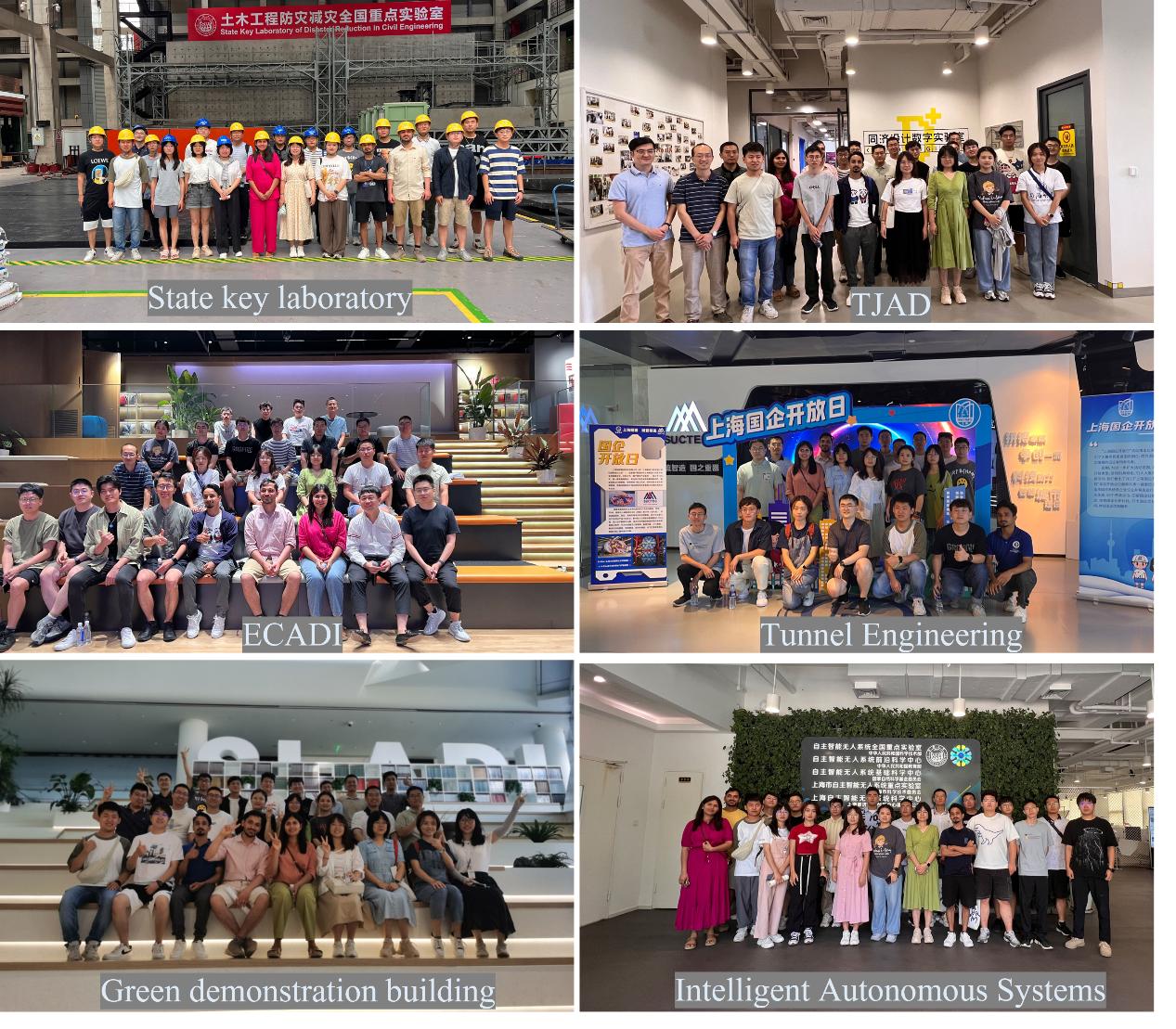
These visits provided participants with invaluable insights into seismic resilience, emphasizing the interconnected nature of engineering, architecture, sustainability, and technology. Supplementing the academic curriculum were cultural exchange events, sightseeing tours, and networking sessions, fostering a global perspective among participants.
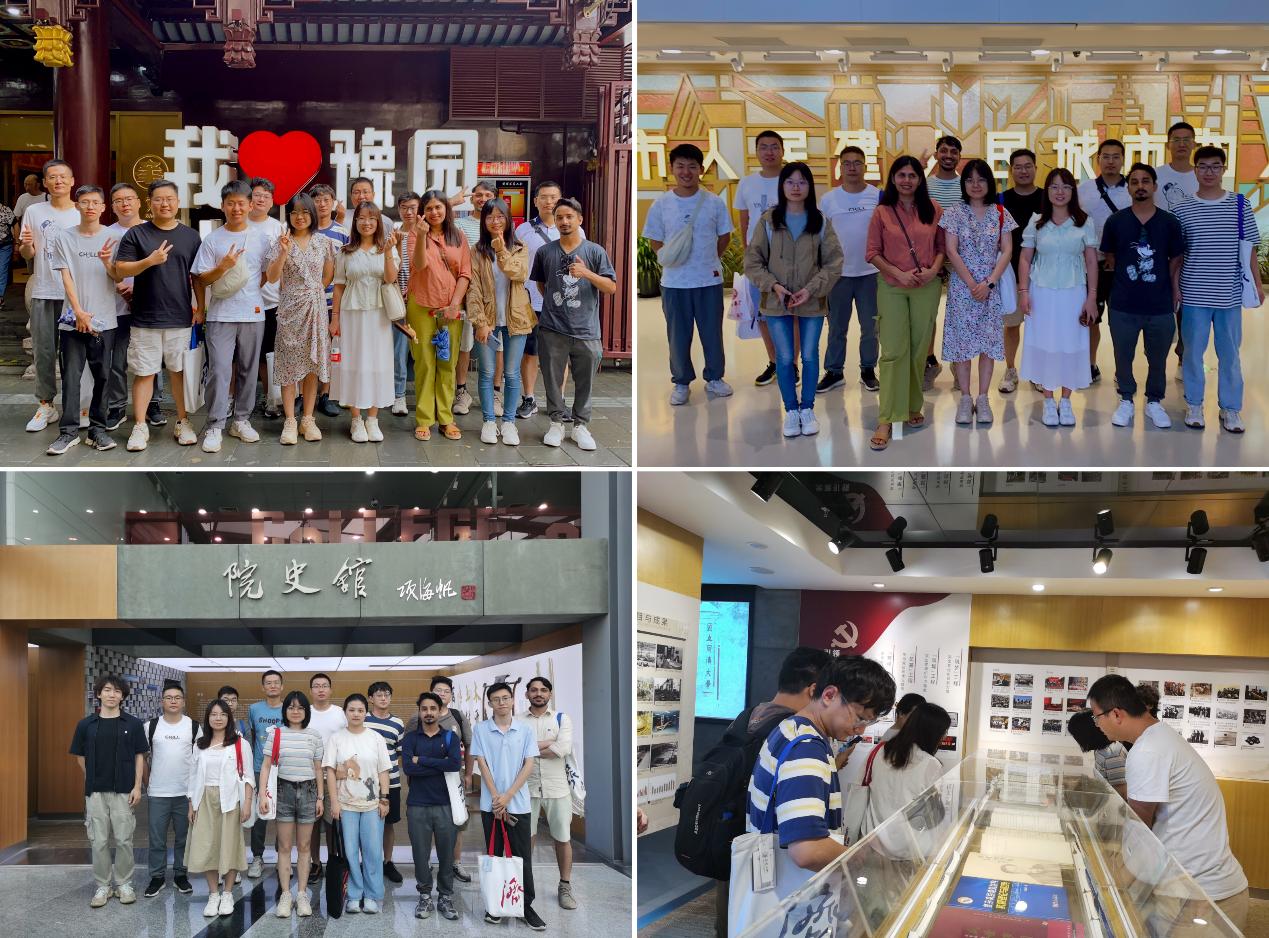
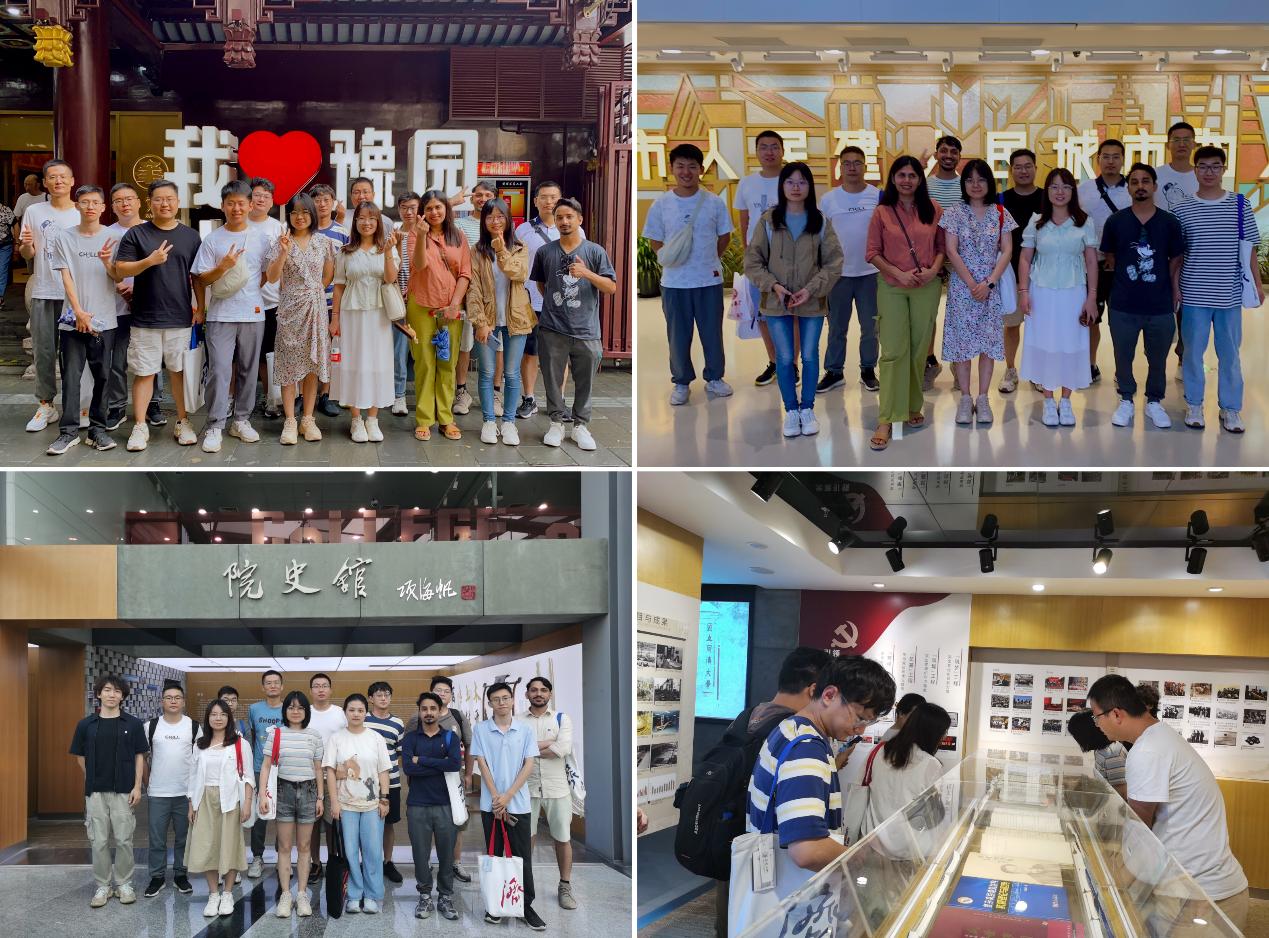
The program's conclusion featured reflective sessions where participants shared their experiences and insights. Student representatives highlighted the value of engaging with advanced knowledge, exploring cutting-edge earthquake research facilities, and forging connections with peers worldwide. Each participant also gave academic presentation further facilitating the exchange of ideas, fostering a collaborative learning environment.
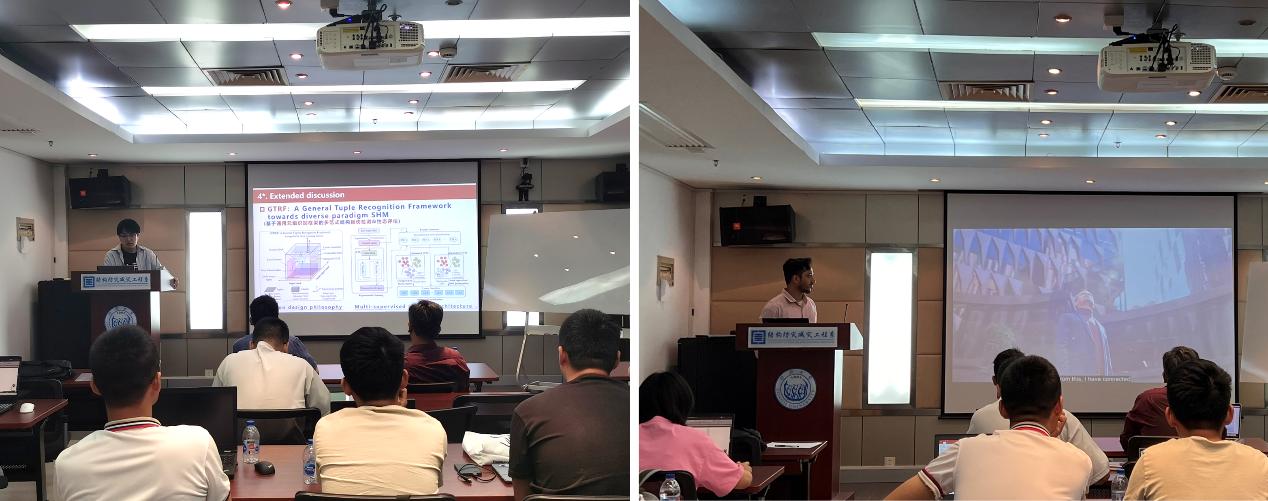
As the closing ceremony concluded, the ILEE summer school on "Seismic Resilience for Cities and Structures" achieved a successful culmination. Over the course of the two-week summer program, students have not only deepened their understanding but are now well-prepared to make significant contributions to the field of seismic engineering.
The International Joint Research Laboratory of Earthquake Engineering (ILEE) is an internationally acclaimed center of excellence jointly administered by the Ministry of Education (MOE) and the Ministry of Science and Technology (MOST) in China. The headquarters of ILEE is located at Tongji University in Shanghai, China. ILEE's primary objective is to provide a robust platform for renowned international earthquake engineering researchers to exchange ideas, collaborate on research projects, utilize shared facilities, and facilitate the exchange of scholars, researchers, staff, and students. The laboratory also facilitates the exchange of laboratory test data among its members. Currently, ILEE stands as the largest earthquake engineering research network globally. Its core members include the Pacific Earthquake Engineering Research Center (PEER) in the United States, the Urban Disaster Prevention Research Core (UDPRC) at the Tokyo Institute of Technology in Japan, the European Centre for Training and Research in Earthquake Engineering (EUCenter) in Italy, the Multidisciplinary Center for Earthquake Engineering Research (MCEER) in the United States, the Earthquake Engineering Research Facility (EERF) in Canada, the NZ Center for Earthquake Resilience (QuakeCoRE) in New Zealand, and the National Center for Research on Earthquake Engineering (NCREE) in Chinese Taipei. ILEE's primary focus is to conduct advanced collaborative research on an international scale, aiming to develop innovative solutions to mitigate seismic vulnerability worldwide and pave the way for next-generation earthquake engineering solutions.






 loading......
loading......